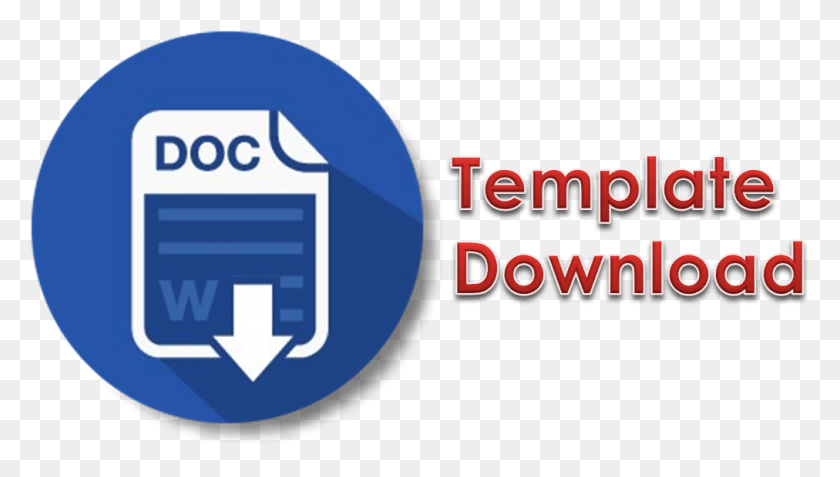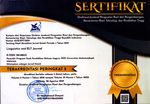Interactive E-Modules: Revolutionizing English Learning for University Students in the IR 4.0 Era
Abstract
The world is presently undergoing a fourth industrial revolution. Artificial intelligence, supercomputers, genetic engineering, nanotechnology, autonomous transportation, and innovation. This study investigated the impact of an interactive E-module as an innovative English learning tool for D3 Dental Engineering students during the Industrial Revolution 4.0. This study employed a quasi-experimental methodology, incorporating both experimental and control groups. The sample consisted of 56 students, including first-semester students from the D3 Dental Engineering and D3 Midwifery programs, totalling 28 students. The findings demonstrated that the implementation of interactive E-modules as an innovative approach to English learning during the Industrial Revolution 4.0 era had a significant effect, as evidenced by the higher average posttest score of D3 Dental Engineering students (M = 72.86; SD = 10.752) compared to that of D3 Midwifery students (M = 63.75; SD = 12.143). Implementing an interactive E-module significantly influences English learning outcomes for first-semester students. This research emphasizes the necessity of interactive E-modules as an innovative approach to students in the context of the Fourth Industrial Revolution, highlighting the need for more effective learning methods. The implication of interactive e-module is digitally delivered learning materials designed to enhance engagement and interactivity.
Keywords
Full Text:
PDFReferences
A. Syahrial, D. Agus Kurniawan, F. Chan, R. Septianingsih, and R. Perdana, “Multimedia Innovation 4.0 in Education: E-Modul Ethnoconstructivism,” Ujer, vol. 7, no. 10, pp. 2098–2107, Oct. 2019, doi: 10.13189/ujer.2019.071007.
Sujarwo, Abdul Hakim Yassi, Herawaty Abbas, and Harlinah Sahib, “An Interactive-Based E-Module of Translation Technology of Blended and Online Learning to Improve Autonomous Learning,” The Seyreport Journal (TSRJ), vol. 19, no. 06, pp. 193–209, Jun. 2024, doi: 10.5281/Zenodo.11547317.
Z. Zinnurain, “Pengembangan E-Modul Pembelajaran Interaktif Berbasis Flip Pdf Corporate Edition Pada Mata Kuliah Manajemen Diklat,” Academia, vol. 1, no. 1, pp. 132–139, Sep. 2021, doi: 10.51878/academia.v1i1.546.
S. Sujarwo, A. Asdar, B. M. Sabillah, S. Sukmawati, A. Akhiruddin, and W. Muh. Syata, “Innovation In English Language Learning Model Based Digital Literacy To Construct Young Learners’ Character,” Ethical Lingua, Vol. 10, No. 2, Oct. 2023, doi: 10.30605/25409190.640.
S. Sujarwo, S. Sukmawati, A. Asdar, M. Marzuki, Y. Jubhari, and M. Enjelina Debibillian, “Online Model For Translation Teaching And Learning Pasca Covid-19 Pandemic For EFL University Learners,” Ethical Lingua, vol. 11, no. 1, Apr. 2024, doi: 10.30605/25409190.698.
K. J. Kwant, E. J. F. M. Custers, F. J. Jongen-Hermus, and M. Kluijtmans, “Preparation By Mandatory E-Modules Improves Learning Of Practical Skills: A Quasi-Experimental Comparison Of Skill Examination Results,” BMC Med Educ, vol. 15, no. 1, p. 102, Dec. 2015, doi: 10.1186/s12909-015-0376-4.
S. Sukmawati, N. I. S. Syam, Y. J. Jubhari, M. Mardiani, L. Sasabone, and S. Sujarwo, “Implementation of Technology on English for Specific Purposes (ESP) Students in Communicative Language Teaching Approach,” Ethical Lingua, vol. 10, no. 1, Apr. 2023, doi: 10.30605/25409190.566.
R. D. Ambarwati, L. Bintartik, and A. P. Putra, “The Development of An Interactive E-Module with The Self-Reinforcing Character for Elementary School Students:,” in Proceedings of the 1 st International Conference on Information Technology and Education (ICITE 2020), Malang, Indonesia: Atlantis Press, 2020. doi: 10.2991/assehr.k.201214.247.
R. O. Tarasenko, S. M. Amelina, S. O. Semerikov, and V. D. Shynkaruk, “Using Interactive Semantic Networks As An Augmented Reality Element In Autonomous Learning,” J. Phys.: Conf. Ser., vol. 1946, no. 1, p. 012023, Jun. 2021, doi: 10.1088/1742-6596/1946/1/012023.
Muhammad Chairil Imran et al., “The Impact of Computer Assisted Language Learning (CALL) Technology on Indonesian Learners’ Speaking Skills,” IJOLEH, vol. 1, no. 2, pp. 183–189, Nov. 2022, doi: 10.56314/ijoleh.v1i2.83.
R. Linda, H. Herdini, I. S. S, and T. P. Putra, “Interactive E-Module Development through Chemistry Magazine on Kvisoft Flipbook Maker Application for Chemistry Learning in Second Semester at Second Grade Senior High School,” J. Sci. Learn., vol. 2, no. 1, p. 21, Dec. 2018, doi: 10.17509/jsl.v2i1.12933.
S. Sumarmi, S. Bachri, L. Y. Irawan, and M. Aliman, “E-module in Blended Learning: Its Impact on Students’ Disaster Preparedness and Innovation in Developing Learning Media,” INT J INSTRUCTION, vol. 14, no. 4, pp. 187–208, Oct. 2021, doi: 10.29333/iji.2021.14412a.
R. N. Aisyah, D. M. Istiqomah, and M. Muchlisin, “Developing E-learning Module by Using Telegram Bot on ICT for ELT Course:,” Presented at the 5th International Conference on Arts Language and Culture (ICALC 2020), Surakarta, Indonesia, 2021. doi: 10.2991/assehr.k.210226.054.
A. Mufidah, S. Indana, and I. S. Z. Arifin, “E-Module Based on Blended Learning Type Flipped Classroom on Climate Change Materials to Train Students’ Digital Literacy Ability,” Int. J. Curr. Educ. Res., vol. 2, no. 1, pp. 1–16, Jun. 2023, doi: 10.53621/ijocer.v2i1.204.
A. J. Koth, A. G. Focken, E. R. Lyden, and S. D. Yoachim, “Effectiveness of an E‐module at teaching novice learners critical thinking skills related to dentistry,” Journal of Dental Education, vol. 85, no. 12, pp. 1879–1888, Dec. 2021, doi: 10.1002/jdd.12757.
L. P. Nugroho, S. Sodiq, and T. Indarti, “Effektivitas Pengembangan E-Modul Berbentuk Online Flipbook Pada Materi Aksara Jawa Kelas X SMK,” Jurnal Education and development, vol. 9, no. 3, 2021.
J. W. Creswell, “Research Design: Qualitative, Quantitative, and Mixed Methods Approaches,” 2014.
D. Ary, L. C. Jacobs, A. Razavieh, and D. Ary, Introduction to Research in Education, 8th ed. Belmont, CA: Wadsworth, 2010.
M. Erna, L. Anwar, and M. Mazidah, “Interactive e-module using Zoom Cloud Meeting platform to reduce misconceptions on salt hydrolysis material,” EduLearn, vol. 15, no. 2, pp. 283–290, May 2021, doi: 10.11591/edulearn.v15i2.18460.
R. Eliyasni, M. Habibi, Rahmatina, and N. F. Azima, “E-Module Flipbook Model for Designing E-Learning Materials in Higher Education,” presented at the 2nd Progress in Social Science, Humanities and Education Research Symposium (PSSHERS 2020), Padang, Indonesia, 2021. doi: 10.2991/assehr.k.210618.004.
DOI: https://doi.org/10.31764/leltj.v12i2.27711
Refbacks
- There are currently no refbacks.
Copyright (c) 2024 Sujarwo Sujarwo, Sukmawati Sukmawati, Asdar Asdar

This work is licensed under a Creative Commons Attribution-ShareAlike 4.0 International License.
_____________________________________________________
Linguistics and ELT Journal
p-ISSN 2339-2940 | e-ISSN 2614-8633

LELTJ is licensed under a Creative Commons Attribution-ShareAlike 4.0 International License.
_____________________________________________________
LELTJ is abstracting & indexing in the following databases:
_____________________________________________________
LELTJ Editorial Office:













